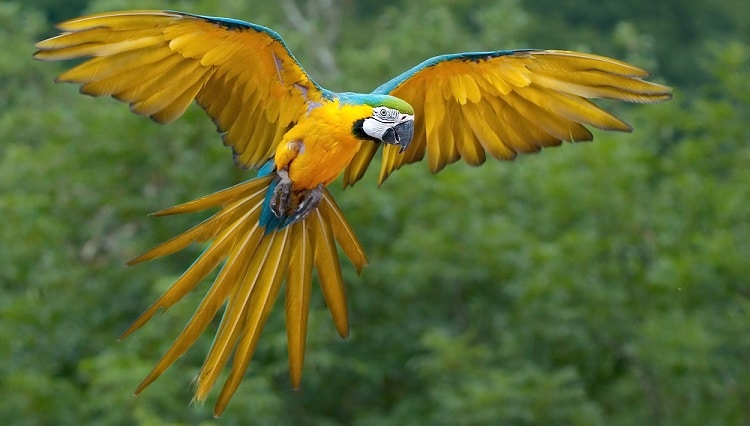Blog
Pellets or Seed? What to know
Pet Parrots aren’t Wild
The first thing to know about parrots in the wild is that they are usually always flying vast distances in order to find food. Their diet usually consists of things such as plants, fruits, grains, flowers, insects and seed. These allow the parrots to sustain a high-energy diet in order to keep venturing out and finding more food. Parrots may eat some types of seed in the wild, but not usually the types that are found in commercial seed mixes. Due to the fact parrots eat such a wide variety of foods it would be a tough feat to reproduce what they eat. In comparison to our pet parrots, they do not fly these massive amounts of distance in order to get their food, they depend on us to give it to them. Without the same exercise we can’t feed our pets the same as wild parrots because they will become overweight and have associated health problems.
Seeds
The seed we give our birds are deficient in vitamins, minerals and amino acids. Seed is also lacking in proteins and the little proteins they do contain are of poor quality and the bird doesn’t get much out of it. The difficultly with seed is that it is incomplete with everything the bird needs in a diet. This proves to be bad if parrots are given a seed only diet. Seed is often high in fat which is a reason it can become so problematic. Usually what birds do is that they pick out exactly what they like (the fatty seed) and leave what they don’t want behind. This eventually leads to the very common problem of obesity in birds. With high fats and over eating accompanied by the deficient vitamins, minerals and amino acids, birds set on a seed only diet will not develop and grow as they should which leads to shorter lifespans and an overall unhealthy lifestyle.
Pellets
Pellets are usually formulated with the essential nutrients a birds needs in order to develop and live a full life without complications. Most pellet formulations come with extensive research into what exactly needs to be included in the pelleted diet. Pellets are also 100% edible and no wastage which is a great advantage over seed as seed has about 40% wastage. However the one downfall with pellets is that they are usually made for the general population of birds and don’t target specific species needs, but they do a great job of hitting all the main requirements. With a lot of bigger parrots wanting to hold their food while they eat, pellets are a great delivery method that seed just can’t provide.
Best diet for your bird
One of the most basic things that most people miss is the need for variety in a bird’s diet. A bird needs a varied diet of its main diet with fruits, vegetables and grains, the more variety you give the bird the more it will be able to meet its nutritional needs. The main diet for our pet birds should be around 70% – 80% pellets with 20% – 30% fruits and vegetables. Having such a balance diet leads to the bird staying healthy, living longer, better colours, better feather condition, and quality breeding results tied with being more active. Birds are depend entirely on what we give them so it is crucial that we get it right the first time and not put our birds through the unneeded stress of an incomplete diet. Diets change as the bird does, some pellets are formulated for the different nutritional needs of the bird for breeding, feeding or neither, so it is best to know what your bird needs and when.


I have been feeding my 4 month old king parrot your crumble mix which has been great. At the same time you recommend dpand sold me a seed mix which I emptied into a container and am now not sure which one it was, however I would like to change him to a pellet mix and as he loves fruit and vege thought I would feed him one which contains everything in the mix and wonder which one you would recommend
Hi Glennis,
you might want to try mini California blend, that has dried veges and fruit in it.
Regards, Gena.